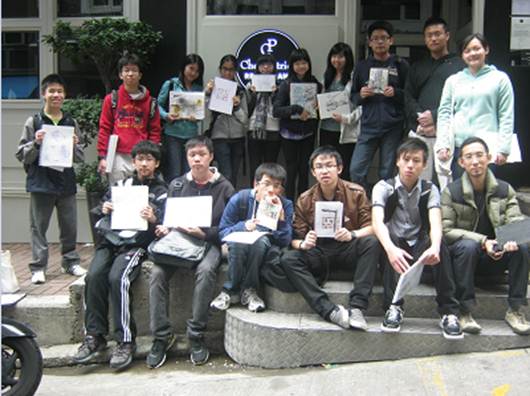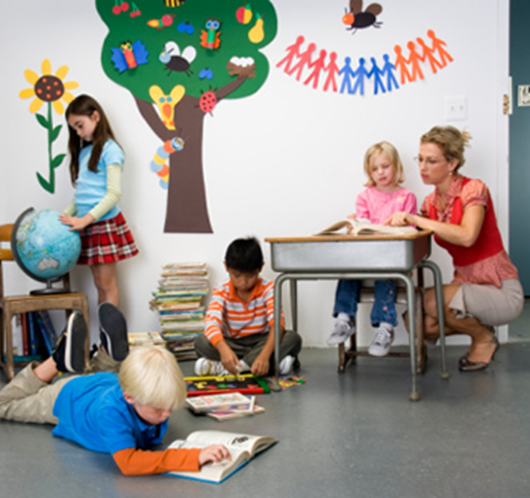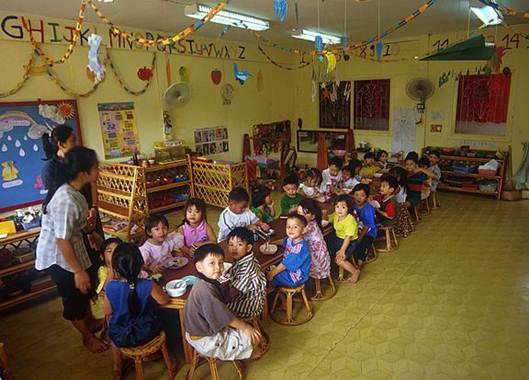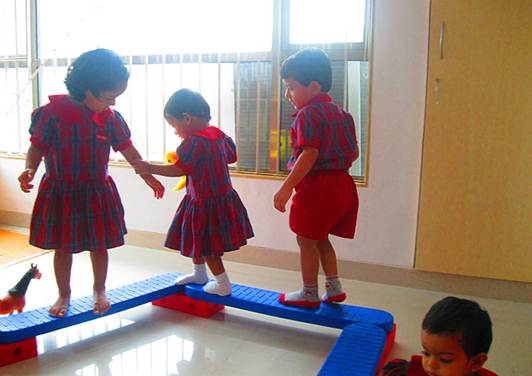The classroom at international preschools
resemble a mini United Nations gathering.
Our experts:
Weelai Supanarat is assistant professor in
the School of Education at Asian International College.
Lucy Chew is deputy director of the School
of Humanities at Ngee Ann Polytechnic.
Justine Wooden is principal of Chatsworth
Kindergarten.
James McGhie is head of Preschool and
Junior School at Nexus International School
Wardinah Bahati is head of curriculum at
White Lodge Kindergarten.
Jaymee Yay is director of Rosemary Hall
Montessori Kindergarten.
Why should I enroll my Singaporean child at an
International school?

Singapore
International School
Weelai: He
gets to experience diversity first-hand. He becomes aware of the differences as
well as similarities among various cultures, languages, lifestyle and beliefs.
He will develop a sense of empathy and learn to be sensitive towards people who
are different from him.
James: It
teaches him to see the world through the perspective of others. I have a
beautiful photo of a child from Norway with his hand on the head of a kid from
India. They are laughing and giggling together at a performance that they are
watching. Kids at international schools see friends in everyone. They know they
are a part of the world community.
What’s the curriculum like?

Depending
on the level of interest, the class may work on activities related to the
provocation, or they could discuss something else that has captured their
curiosity.
James: Nexus
is an IB (International Baccalaureate) World School. On a typical day, the
teacher sets up a provocation (a display aimed at generating interest among the
children, which may set off a topic for discussion that could last for weeks)
before the pupils arrive in class.
Depending on the level of interest, the
class may work on activities related to the provocation, or they could discuss
something else that has captured their curiosity – a child only has to bring a
tortoise to class and it would change the plans for the day. Our pupils can
choose to learn French or Chinese as their second language. Physical Education
usually involves swimming lesons.
Jaymee: The
curriculum at Rosemary Hall is guided by Montessori and the English Early Years
Foundation Stage Framework (a British system), which have very similar goals.
Kids are no assessed by grades but by the teacher’s observation and record
keeping.
We have four- to sex-year-olds in the same
class. (The Montessori method recommends having classes of mixed age groups.)
They have the freedom to choose what they want to work on. The teacher moves
around in the class to facilitate the children’s learning and gives each child
individual attention. (For a more detailed description of a Montessori lesson,
refer to the March issue of YP.)

We
have four- to sex-year-olds in the same class.
Justine:
Many kindergartens in Singapore like to pun a particular approach to their
curriculum, such as Montessori or Reggio Emilia (an Italian approach from the
Italian town of the same name). Chatsworth doesn’t. We’re inspired by Reggio
Emilia and IB, and pick the best practices from these two approaches. I don’t
think we can copy any approach directly because we’re in a different context
and culture from where these approaches originated.
Wardinah:
White Loge uses a combination of different approaches. Usually, the teacher
hosts a discussion about an object that’s relevant to the unit the kids are
currently working on. After asking the children some questions to test their
understanding, the teacher may use books, videos, photographs or sound clips to
further explore the subject. The pupils will revisit the concepts learnt
throughout the day through music, art and writing or even during playtime. At
the end of the day, the teacher reviews the concepts learnt.
Do international preschools prepare my child the local
primary school system?

We
teach kids to think independently, use problem-solving strategies, and organize
thoughts and ideas.
Justine:
Chatsworth kids are academically prepared for Primary 1. Academics are
important, but it’s not our only focus. What’s more important is to teach the
skills that will help him excel. For example, instead of making the child memorise
words (which means he’s limited to reading only the words he has memorized), we
teach him how to sound words so he can read those he’s never seen before. We
teach kids to think independently, use problem-solving strategies, and organize
thoughts and ideas. Our approach to education is holistic.
James: I
think that’s a real concern. Without a doubt, Nexus prepares the kids
academically. What they may not be ready for is the type of education they will
be experiencing – they will be transitioning from an inquiry – based education
at Nexus to a fact-based one at local primary schools. Parents do come to us
with expectations that we may not fulfill. We are not a school for everyone. No
school is.